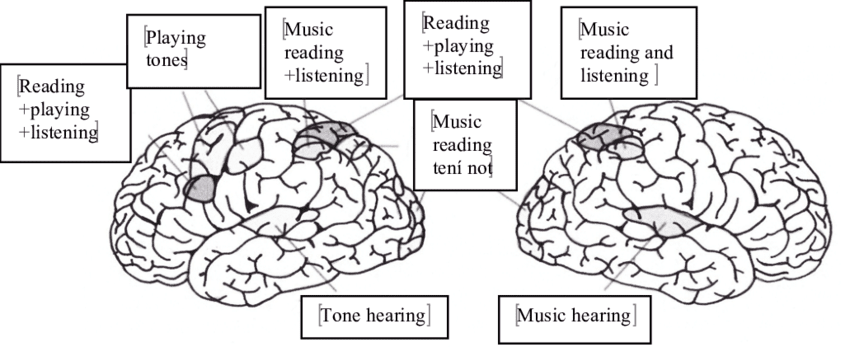Music is more than just a source of entertainment. It can be a transformative power that connects, heals, and inspires. For millions, the right melody can serve as a refuge during turbulent times, soothing the mind and uplifting the spirit.
The transformative power of music is undeniable. As soon as we hit the play button, it has the potential to shift our emotional state, taking us on a journey.
This phenomenon is beautifully embodied by artists such as Taylor Swift and Coldplay. Their work has been instrumental in shaping the landscape of music and influencing conversations around mental well-being.
Taylor Swift, an American singer-songwriter known for her emotive lyrics, once said, “People haven’t always been there for me, but music always has”.
Music has a unique ability to resonate with emotions we can’t always put into words. For individuals grappling with anxiety, depression, or chronic illness, music becomes a language of comfort and connection.
Music’s ability to heal extends far beyond its lyrics and melodies. Platforms like YouTube and Spotify host countless curated playlists designed to help people unwind, sleep better, or center themselves during moments of stress.
The Science of Healing Through Sound
Music’s impact isn’t just emotional; it’s deeply neurological. Research shows that music stimulates diverse brain networks, influencing emotion, memory, and motor function.
Dr. Geraldine Tan, Director and Principal Psychologist at The Therapy Room, elaborates on this, stating, “Certain music is known to help relax the brain. And we use certain relaxation music for breathing and meditation.”

She explains: “The music taps into the right hemisphere of the brain and activates not only the logical part of the brain that is primarily in the left hemisphere. The rhythm also provides a structure for the brain to slow down and calm down.”
Whether it’s soothing rain sounds or an energetic rock anthem, “Music allows the individual to express their emotions.” she shares.
“Music also evokes different emotions, including nostalgia and exhilaration. The music can help us to reminisce about the past or memories with a certain person or different periods of their lives. The lyrics of the music can also help to express the words we find difficult to articulate.”
The activation of brain regions and networks through music can enhance well-being, learning, cognition, and happiness. Music stimulates brain chemicals, evokes emotions and memories, and strengthens social connections.
The Role of Music in Managing Health Conditions
Preliminary research suggests that music-based interventions may be helpful in managing symptoms of health conditions.
These conditions include anxiety, depressive symptoms, and pain associated with ailments such as dementia, multiple sclerosis, Parkinson’s disease, and more.

While these initial findings are promising, more rigorously designed studies are needed to provide stronger evidence.
In her practice, Dr Tan integrates music therapy: “Music is used in various different ways in therapy…some have composed music pieces, played them on their instruments or written songs.”
The benefits are not only limited to the musically-inclined – Dr Tan is able to incorporate these instruments in sessions dynamically: “In my work, I use musical instruments in session, and they can bang on hand drums, use shakers etc.”
Music is a tool for self-expression and a way to channel emotions they struggle to articulate otherwise. “We see the changes in their mood via the music they play or write.” she shared.
Regarding anxiety, reviews of numerous studies suggest that music-based interventions can significantly reduce anxiety in various settings and disease conditions. For example, listening to recorded music has been shown to reduce anxiety in people awaiting surgery or undergoing dialysis treatments.
For pain management, music-based interventions have been shown to have potential benefits. Reviews of multiple studies indicate that such interventions may reduce pain intensity and emotional distress.
Taylor Swift: An Advocate for Mental Health Awareness
Taylor Swift, a towering figure in contemporary music, has consistently utilised her platform to elevate discussions on mental health. Her willingness to openly share her personal struggles, especially concerning mental health, has been deeply impactful.
Swift’s album, “Midnights,” for instance, has resonated deeply with fans due to its exploration of mental health themes, including depression and body image issues.
Through her poignant lyrics, she provides a voice for those experiencing similar challenges. Notably, Swift’s songs “Anti-Hero” and “You’re on Your Own, Kid” directly reference her own struggles with mental health, providing a relatable narrative for many fans.
“As someone who has dealt with a handful of mental illnesses for most of my life, “Anti-Hero” (and its video counterpart) captures the complex feelings that often come along with deep self-loathing, body-image issues, and depression.” – Jada Welch Olson, with PopSugar
Swift’s openness about her own mental health challenges has broken taboos and encouraged her audience to confront their own struggles with compassion and courage.
The Path Towards Healing: Coldplay
Coldplay, renowned for their emotionally-charged compositions, has also ventured into the sphere of mental health through their music.
Their celebrated song “Fix You” stands as a beacon of hope and resilience for many. The track, which combines the raw emotion of lead singer Chris Martin’s vocals with a compelling blend of electric guitar and synths, is an embodiment of empathy and support.
Martin has expressed his pride in this song, stating it’s the Coldplay song he’s most proud of, primarily for its honesty and vulnerability.
This sentiment is beautifully captured in a YouTube reaction video by a suicide survivor, Amanda, who shared her thoughts after listening to Coldplay’s “Fix You” for the first time.
“He has a really unique blend of strength and fragility in his voice and I think it really conveys a sense of vulnerability while prompting introspection in the listener” Amanda expressed. “This song gives validation, reassurance and motivation.”
The Transformative Power of Music
Between anecdotes to research, the power of music to heal, inspire, and connect is undeniable. Artists like Taylor Swift and Coldplay are not only entertaining us, but also using their platforms to shine a light on the importance of mental health. By harnessing the emotional impact of music, they have become catalysts for change and advocates for a more compassionate and understanding society.

